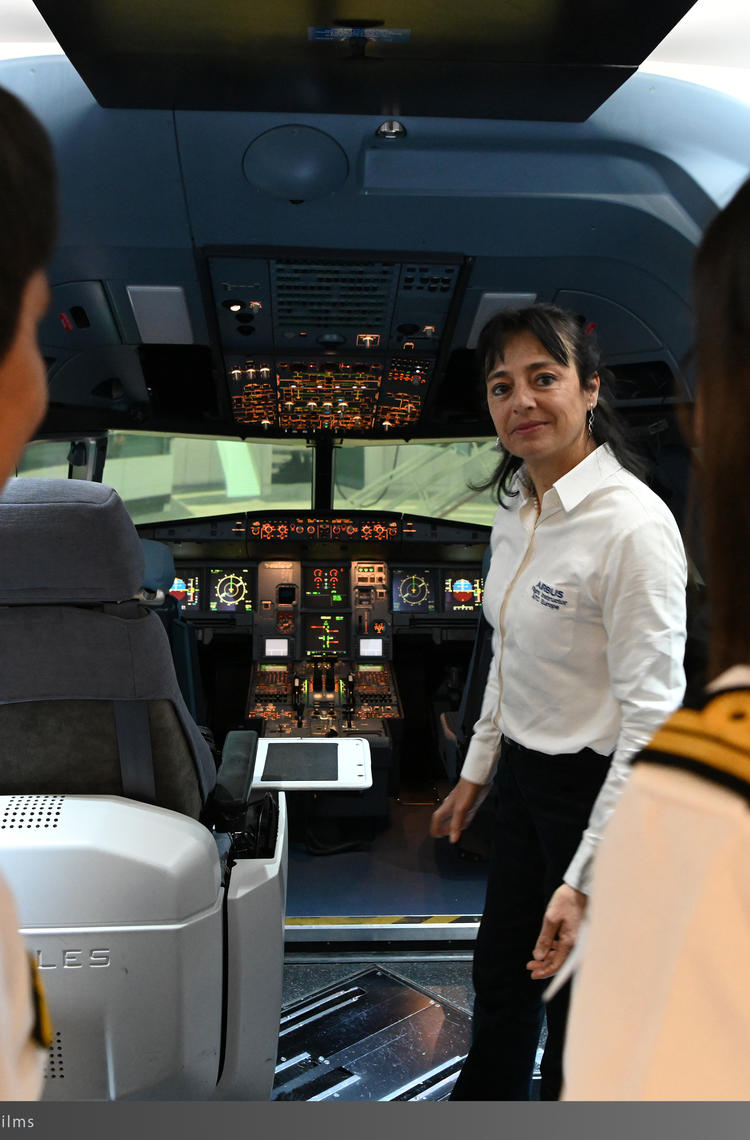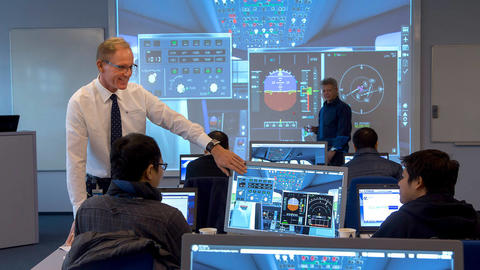Introduction:
The aviation industry is constantly evolving, demanding a shift in how we train our pilots. Competency-Based Training and Assessment (CBTA) is no longer a futuristic concept; it is rapidly becoming the standard, driving a significant paradigm shift in pilot training methodologies globally. In this interview, Captain Olivier Mazzoleni, Head of Pedagogy & Standards at Airbus, explores the importance of CBTA, its implications for training organizations and airlines, and how Airbus is leading the change in this transformative journey.
Captain, can you explain the fundamental difference between traditional training and the emerging Competency-Based Training and Assessment (CBTA) methodology?
Traditional training focuses on breaking down piloting into individual tasks—like a rejected takeoff or a low-visibility approach—and assessing performance on each. While effective for predictable scenarios, struggles with the complexities of modern aviation and the sheer number of potential situations a pilot might face. It’s simply impossible to train for every eventuality.
CBTA, on the other hand, prioritizes the development and assessment of core competencies—the skills and knowledge necessary to handle a wide range of situations. Instead of focusing on specific tasks, we focus on building the pilot's ability to adapt and problem-solve, leading to more resilient and adaptable flight crews.
What are the key competencies that CBTA emphasizes?
The competencies we focus on fall into two main categories: technical and non-technical. The technical competencies include:
- Application of knowledge: Understanding and applying theoretical knowledge to real-world scenarios.
- Application of procedures and compliance with regulations: Adhering to established procedures and regulations while maintaining safety.
- Flight path management - automation: Effective use of aircraft automation systems.
- Flight path management - manual control: Proficient manual control of the aircraft.
The non-technical competencies are equally critical:
- Communication: Clear and effective communication with air traffic control, crew, and other stakeholders.
- Situation awareness and management of information: Maintaining a comprehensive understanding of the operational environment.
- Leadership and teamwork: Effective leadership and collaboration within the flight crew.
- Workload management: Efficiently managing workload during critical phases of flight.
- Problem solving and decision making: Applying critical thinking skills to resolve complex issues.
How did CBTA evolve, and what role did Airbus play in its development?
The impetus for this shift came from ICAO as early as 2007, recognizing the need for a training paradigm shift given the progress in aircraft technology and the ever-evolving operational landscape. An international working group, including Airbus, was formed under the guidance of IATA, leading to the development of Evidence-Based Training (EBT), which in effect is the introduction of the CBTA methodology in the Recurrent Training phase of flight training. Airbus has been actively involved from the outset, participating in key working groups and actively shaping the development and implementation of these crucial methodologies.
Can you discuss the global adoption of CBTA and its regulatory landscape?
Following ICAO's endorsement of EBT in 2013, CBTA has seen significant global expansion. EASA incorporated EBT principles in 2016, and the European Commission officially adopted baseline EBT requirements in 2020. EASA further solidified its commitment with a CBTA Rulemaking in 2022. This is not just a European phenomenon; other regions, such as Asia Pacific and the Middle East, have also mandated CBTA, highlighting its growing importance worldwide.
How has Airbus integrated CBTA into its training programs?
Airbus has been a pioneer in CBTA implementation. We incorporated CBTA into the A350 Type Rating as early as 2014, followed by the A320 Family and A330 Type Ratings in 2017 and A220 in 2020. Our commitment extends beyond type ratings; in 2019, we integrated CBTA into our Ab Initio training, our instructor course in 2021, and our Command and Recurrent training (EBT) courses in 2022. Our "Airbus Total System Approach" offers a comprehensive, end-to-end CBTA curriculum, from cadet selection to ongoing professional development – a truly complete solution. This approach is supported by the Airbus Flight Training Reference (AFTR), ensuring a globally harmonized training standard across all our 12 training centres.
What are the key benefits of adopting a CBTA approach for airlines?
Adopting CBTA offers several advantages. It fosters a more adaptable and resilient pilot workforce, better equipped to handle unforeseen situations. The focus on core competencies enhances training efficiency, reducing the need to train for every possible scenario. Ultimately, CBTA leads to safer operations, improved pilot performance, and better alignment with evolving regulatory requirements. Airlines that embrace CBTA are investing in a future-proof training system, preparing their pilots for the complexities of modern aviation.
Conclusion:
CBTA is not just a training methodology; it’s a fundamental shift in how we prepare pilots for the challenges of the 21st century. Airbus, with its long-standing commitment to innovation and safety, is at the forefront of this evolution. Partnering with Airbus means access to a complete, globally-harmonized CBTA solution, ensuring your pilots are equipped with the skills and knowledge needed to excel in today's dynamic aviation environment.



